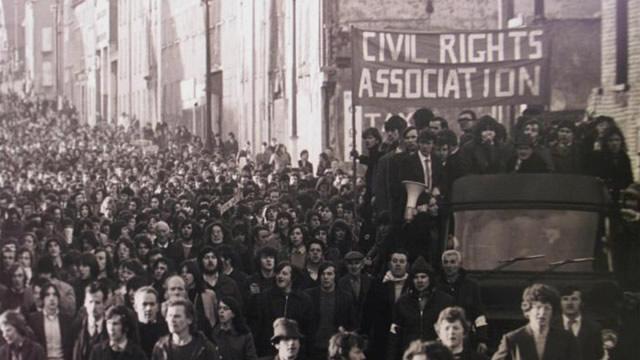
The sister of Bloody Sunday victim James Wray has initiated a High Court challenge over a decision to extend an anonymity order in the case of an ex-British soldier charged with murder.
A former British Paratrooper, known as Soldier F, is charged with murdering Jim Wray and William McKinney on January 30, 1972.
He’s also charged with attempting to murder Patrick O’Donnell, Joseph Friel, Joe Mahon and Michael Quinn, as well as attempting to murder a number of persons unknown.
An application was lodged previously for Soldier F’s anonymity to be lifted.
This week District Judge Ted Magill has said that Judge Barney McElholm granted an anonymity order some time ago and that will continue.
Madden & Finucane Solicitors represent Margaret Wray, a sister of James ‘Jim’ Wray who was shot dead in Glenfada Park.
Fearghal Shiels from Madden & Finucane said Ms Wray is challenging the ongoing decision of Judge Magill to maintain an interim order made on September 18, 2019, when the case first came before the Magistrates Court, to grant Soldier F anonymity.
He said Soldier F has made ‘no proper formal application and submitted no evidence to support an application as to why he should benefit from such an order’.
“She is also challenging a decision to permit Soldier F to be screened from her, the families and the public.
“No such formal application for screening has been advanced by Soldier F, who gave evidence unscreened from the public over two days at the Bloody Sunday Inquiry in October 2003 and indeed before Widgery in 1972.”
Mr Shiels added: “In our view, neither of these measures are justified and are unacceptable breaches of the principals of open justice.
“Ms Wray has been forced to bring these proceedings at this time because the Public Prosecution Service failed to honour a promise expressly made to the families that the issue of Soldier F’s anonymity would be addressed before these committal proceedings began.”
The challenge will be heard before the High Court on March 23.
You must be logged in to post a comment.